
NOW that Euro 2020 has come to a disappointing end for all but the Italians, what are the public relations lessons we can learn from the four-week festival of football?
If it came down to contexts, then clear and balanced communication lifts the trophy after a tense penalty shoot-out with dignified leadership. Misplaced brand synergies and political band-wagoning were knocked out in the group stages.
Public relations is all about reputation – what you say, what you do and what others say about you. It’s a mantra that spans a multitude of disciplines and contexts from fashion brands to football, personal life to political life.
So, who were the winners and who were the losers at Euro 2020?
Winner – a leadership culture
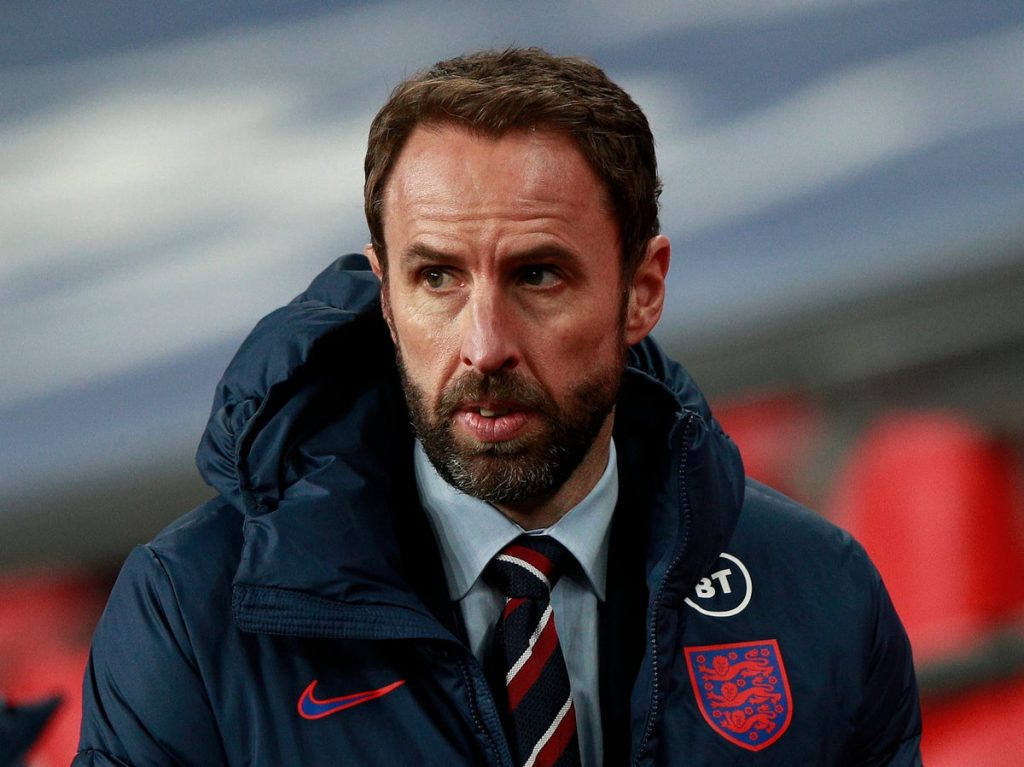
England manager Gareth Southgate has deservedly been recognised as a great communicator and a role model for how exemplary culture at the top will filter throughout an organisation or team. As social responsibility guru Peter Drucker says: ‘culture eats strategy for breakfast’.
Southgate’s England are unlike any international squad in my long footballing memory which were largely made up of talented, but often overrated individuals.
Southgate is not just a team selector. For years within his FA roles, he has been nurturing a culture and crop of likeable, positive role models whose values of self-respect, dignity often outshine their footballing talent. These players may be millionaires, but their genuine altruism is far more affecting and effective than that from the leaders we are traditionally expected to aspire to.
Southgate’s leadership can be likened to van Riel’s Elements of Corporate Identity with a clear purposeful culture developed from the top, complimented by what it says and does on and off the pitch. Ultimately, these shared values filter beyond to fans, the media and other stakeholders to create a positive image for the England camp.
Winner – England football team. Not only has the reputation of the team been enhanced on the pitch, the dignified way in which the young lions conducted themselves throughout the tournament was exemplary.
As footballers, the players are part of the production sub-system – providing the services to help achieve organisational goals. But the manner in which they responded to the despicable racist abuse following the final defeat, demonstrated that they were part of an adaptive system, too, responding and adjusting to external threats with dignity and clarity. Let’s not forget, several of these players are still very young.
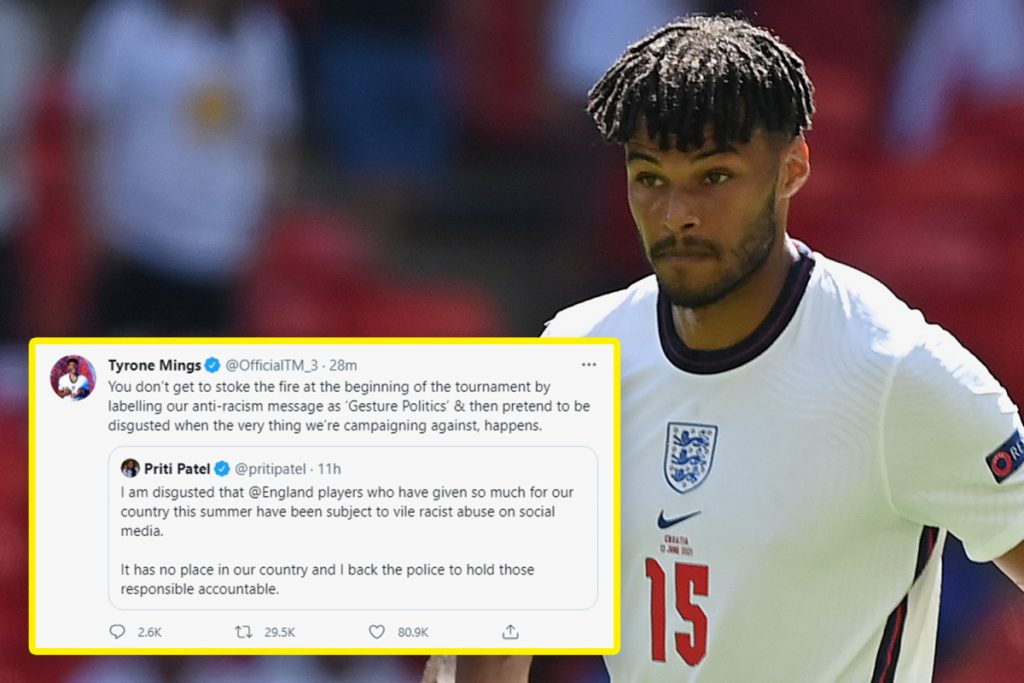
There were examples of symmetrical communication within the team’s social media responses too with Tyrone Mings’ powerful tweet calling out the UK government’s hypocrisy triggering a heated Parliamentary exchange and stimulating debate over the ethics and declining values of political leadership.
Winner – a crisis managed with Danish dignity
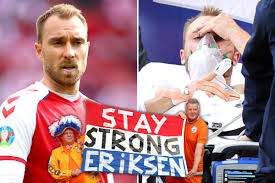
It seems an age ago now, but the first Saturday of the tournament brought one of the most upsetting moments ever seen in sport when the Danish captain and talisman Christian Eriksen collapsed on the pitch after suffering cardiac arrest. For around 30 minutes, medics attempted to revive Eriksen while team-mates formed a dignified barrier around the player and comforted his wife who was watching at the pitch-side.
For several days, the tournament appeared in doubt as players, fans and commentators correctly opined that football is and never has been more important than life or death. Eriksen’s recovery inspired and unified the Danish team and nation to the semi-final of the tournament.
But the real winner from this traumatic event was increased public awareness and attitudes towards life-saving CPR training and skills. Eriksen’s collapse triggered international media interest in cardiac conditions, particularly when impacting seemingly young and fit people. This has spurred investment in life-saving defibrillators and new processes to ensure communities know where their nearest defibrillator is.
Loser – brand synergies shown the red card
Very early in Euro 2020, superstar Cristiano Ronaldo made his disdain for corporate sponsors Coca-Cola clear by moving aside two strategically placed Coke bottles during a press conference. A few days later, France’s Paul Pogba did likewise with bottles of Heineken during a media briefing.
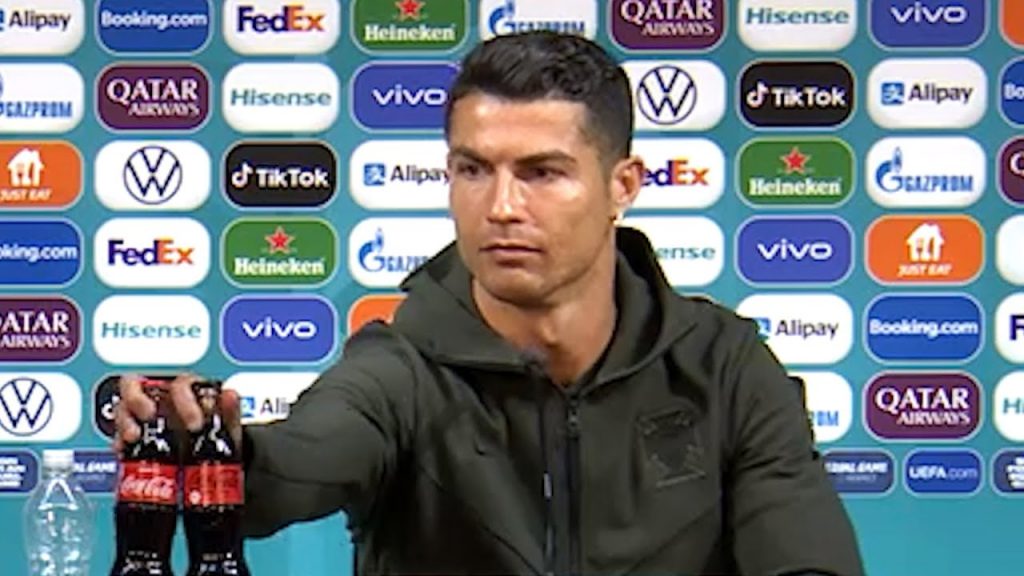
Sponsorship is an essential part of corporate sport and international tournaments would disappear without it. But global audiences are not the passive consumers they once were; social media means publics have a strong voice and will actively call out mis-matching between brand and tournament leading to huge reputational risk for the mega brands. Ronaldo didn’t get to be the world’s greatest footballer by guzzling Cokes and Pogba doesn’t kick back with a beer after the match. So, don’t make that insinuation that they do – it’s disingenuous, misleading and damaging to the brand as was shown when an estimated $4billion was wiped off Coca Cola’s share value after Ronaldo’s actions.
Far better to take a subtler approach, identifying synergies between tournament and brand or to develop audiences and awareness in emerging regions. Chinese brands Hisense and AliPay were all over Euro 2020’s pitch-side advertising hoardings supporting their global strategy for recognition within sports markets – a clever move which will have brought these names to prominence in Europe and enhanced their reputation in Asia.
Wooden spoon – Own goal calamities and political gesturing
Prime Minister Boris Johnson has a long history of saying or doing the wrong thing at the wrong time – after all, it’s how he got to be the leader of the country. But his insincere band-wagoning during the Euro semi-final at Wembley demonstrated once again how out of touch political leaders can be.
The hastily arranged ‘Boris 10’ England shirt pulled snugly over an already dishevelled figure was a desperate publicity stunt which reeked of opportunism of the lowest kind. Let’s not forget this is the same Boris Johnson who has previously declared little interest in football and refused to condemn those who booed England players taking the knee.
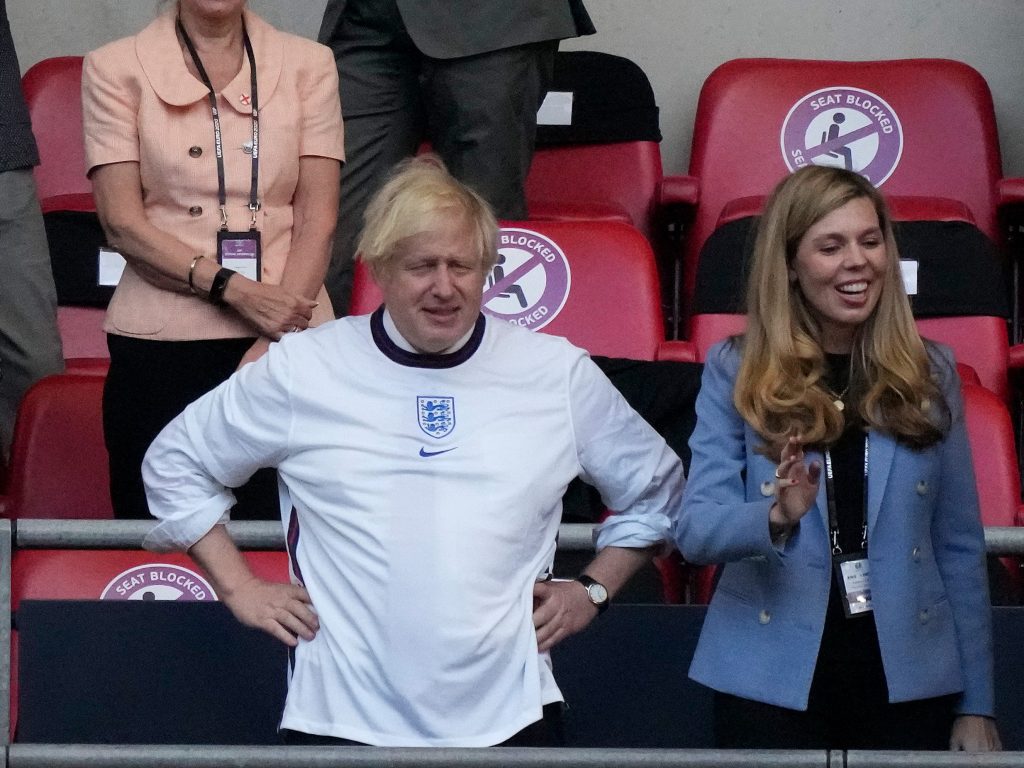
Yet just yards away, young Prince George demonstrated his enthusiasm by belting out the national anthem and cheering on the team to victory – and he didn’t have to pull on a mini England shirt to show his genuine passion.
Elsewhere amongst the political elite were examples of ministers and MPs trashing the knee-taking as political gesturing then weeks later lining up to condemn the racists. Both literally and metaphorically, PM Johnson clearly believes he can have his cake AND eat it and needs to be relegated to the subs bench soon.
All in all, Euro 2020 was a successful tournament for football, particularly for beleaguered fans starved of the thrill of an international spectacle. But again, the tournament served as a valuable reminder that reputation is earned and public scrutiny means that what is said, what is done and what others say needs to more in balance than ever before.
Images courtesy of You Tube, UEFA, independent.co,uk, talksport.com, indy100.com
